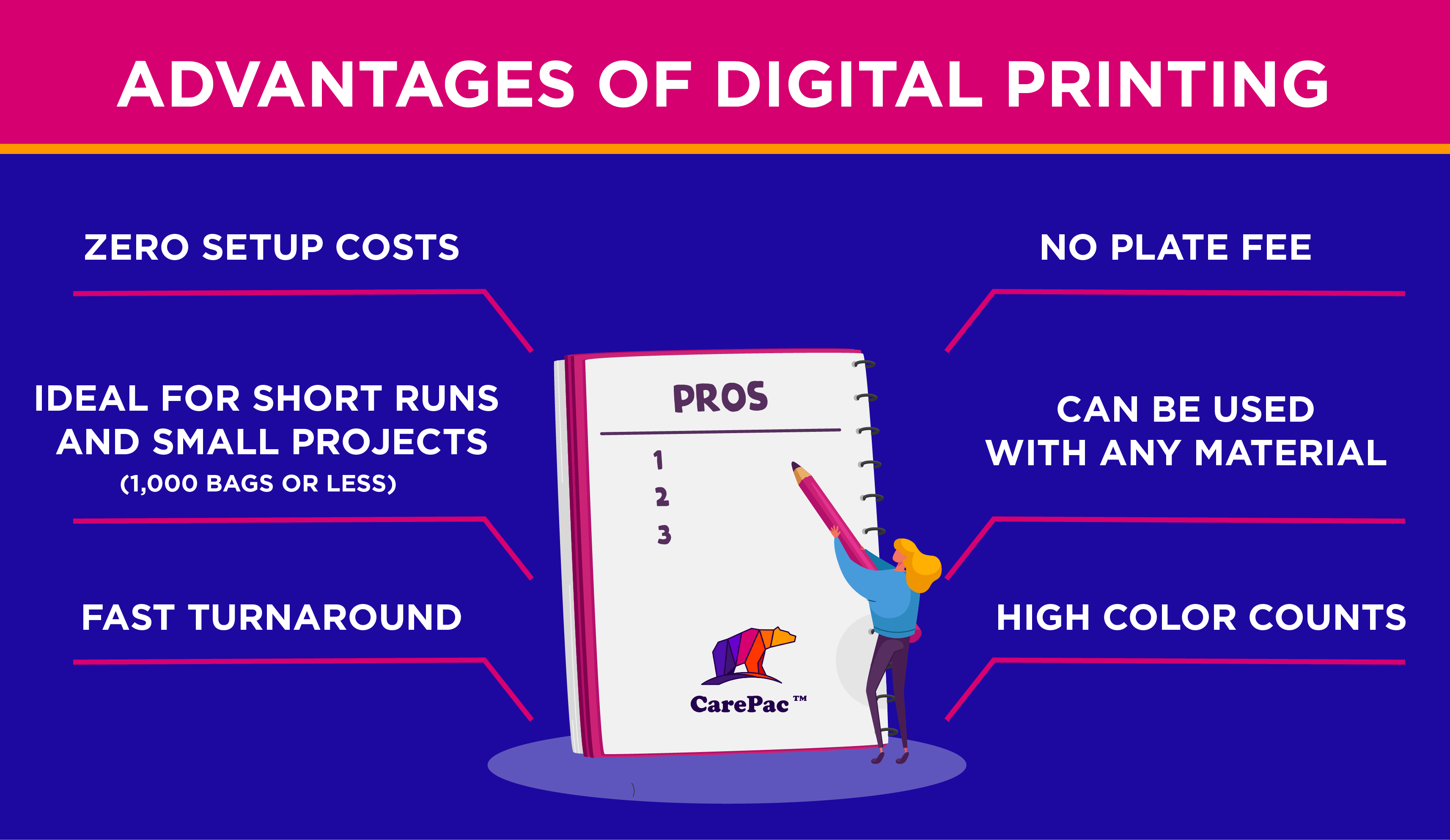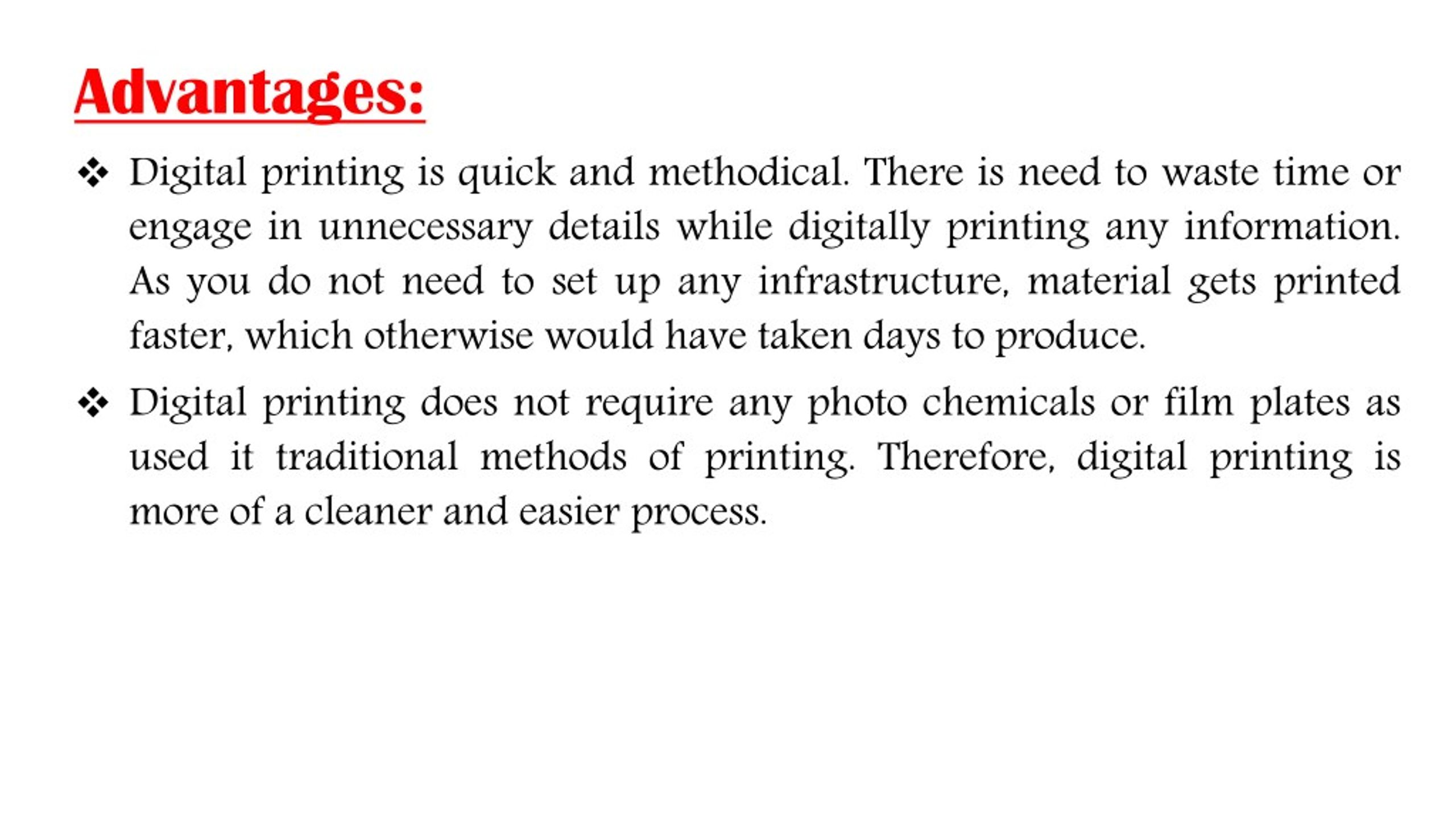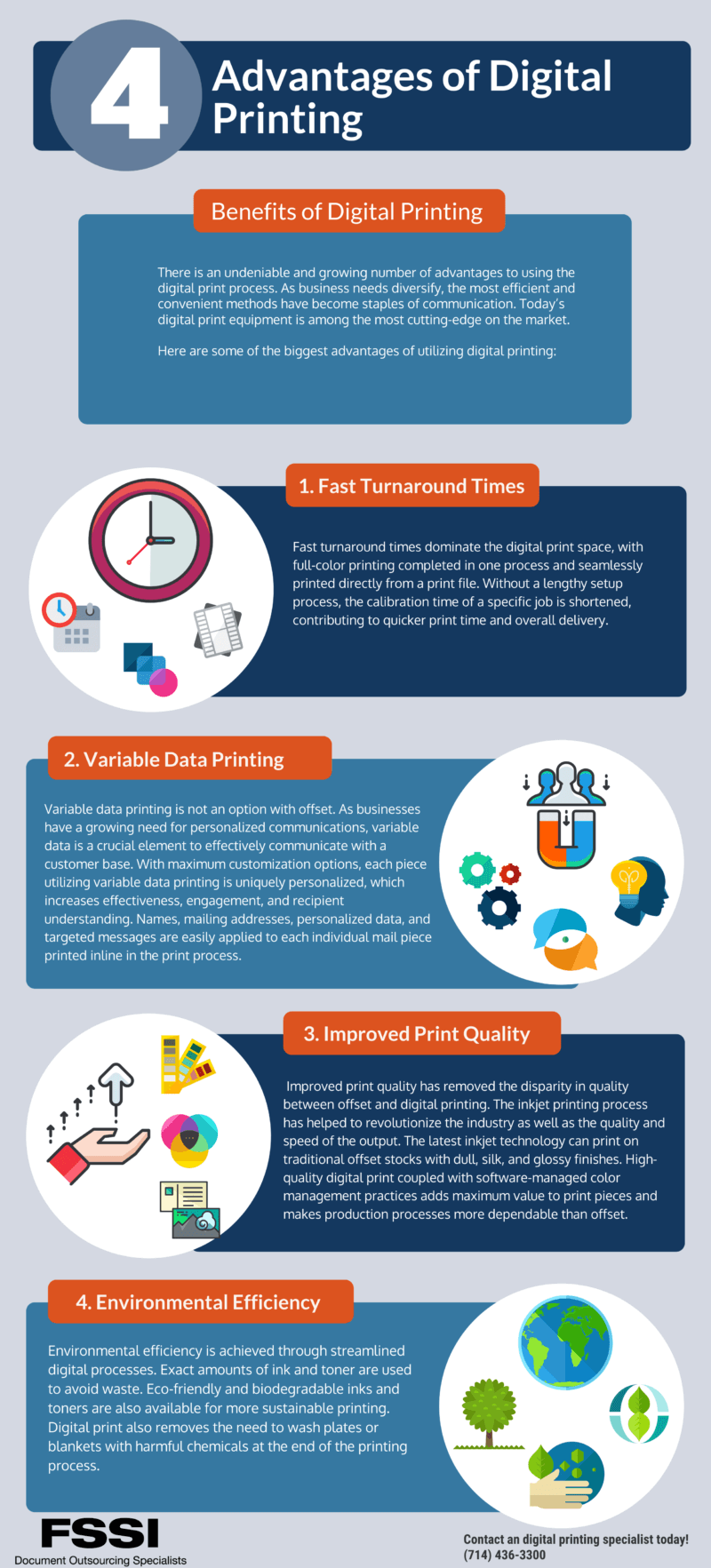All About Digital Printing
All About Digital Printing
Blog Article
What Does Digital Printing Do?
Table of ContentsFascination About Digital PrintingWhat Does Digital Printing Mean?The Only Guide to Digital PrintingThe Ultimate Guide To Digital PrintingOur Digital Printing PDFsOur Digital Printing Statements
Variable information printing, such as straight mail with personalized codes and addresses, is preferably fit for electronic printing. Digital fast printing only needs four steps of style, testimonial, printing and binding to obtain everything done. Digital fast printing has an exceptional advantage: print on demand.According to PMMI, digital printing permits brand names and producers to react swiftly to customer needs while enhancing the supply chain, reducing warehousing price and waste, and enjoying faster time to market. That all noises terrific, but just how does this technology do all that? The significant differentiator of these innovations is that there are no set up costs and no plates with digital printing.
Getting The Digital Printing To Work
This results in quicker turn-around time and decreases cost when using digital printing.
Digital printing is very versatile, so it's easy to make modifications to the bundle style swiftly. It all goes back to the plates.
With standard printing methods, short-run printing is simply not possible. Since a terrific layout can make or damage your product, digital printing constantly creates top quality, clear and vivid graphics each time.
Digital printing is the process of printing digital-based pictures directly onto a variety of media substrates. There is no requirement for a printing plate, unlike with countered printing. Digital data such as PDFs or desktop computer posting files can be sent straight to the digital printing press to print theoretically, picture paper, canvas, textile, synthetics, cardstock and various other substrates.
Things about Digital Printing
According to PMMI, electronic printing allows brands and producers to react swiftly to customer needs while boosting the supply chain, decreasing warehousing price and waste, and delighting in faster time to market. That all audios fantastic, but just how does this innovation do all that? The significant differentiator of these technologies is that there are no set-up costs and no plates with digital printing.
According to Wikipedia, the greatest distinction in between digital printing and traditional approaches such as lithography, flexography, gravure, or letterpress is that there is no demand to change printing plates in digital printing, whereas in these analog printing approaches home plates are repeatedly replaced. This causes quicker turn-around time and lowers cost when making use of digital printing.

The Digital Printing Statements
More stock can suggest even more waste in the future. With traditional printing approaches, short-run printing is simply not possible. Because a fantastic style can make or damage your item, electronic printing continually produces high-quality, clear and vibrant graphics each time. Digital printing on adaptable pouches adds the brilliant, lively, and accurate graphics that virtually bid consumers to get to out and touch them.

According to PMMI, electronic printing allows brands and manufacturers to react swiftly to consumer demands while boosting the supply chain, minimizing warehousing price and waste, and appreciating faster time to market. That all sounds fantastic, yet how does this modern technology do all that? The major differentiator of these modern technologies is that there are no set up fees and no plates with electronic printing.
About Digital Printing
According to Wikipedia, the best distinction between electronic printing and standard methods such as lithography, flexography, gravure, or letterpress is that there is no demand to change printing plates in electronic printing, whereas in these analog printing approaches the plates are consistently changed. This causes quicker turn-around time and lowers price when making use of electronic printing.
Digital printing is highly flexible, so it's simple to make adjustments to the plan style swiftly. It all goes back to read the full info here the plates.

Not known Details About Digital Printing
Digital printing is the procedure of printing digital-based images straight onto a selection of media substratums. There is no demand for a printing plate, unlike with countered printing. Digital documents such as PDFs or desktop computer publishing data can be sent directly to the digital printing press to print on paper, picture paper, canvas, material, synthetics, cardstock and other substrates.
Report this page